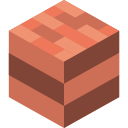
SIT Gulf is a professional graphic design and branding company in Qatar that helps businesses create strong, memorable visual identities. As a top graphic design agency in Qatar, we specialize in logo design, brand strategy, and marketing materials tailored to your audience. Our team of expert graphic designers in Qatar delivers innovative designs that align with your brand vision and business goals. From startups to enterprises, SIT Gulf branding services enhance visibility and engagement across all digital and print platforms. Whether you need a logo design company in Qatar or a full-service branding agency in Qatar, SIT Gulf ensures your brand stands out with creativity and impact.
Recipes may vary, but all works of art and design contain a combination of the following elements shown below,

Lines, in graphic design, can be used for a wide range of purposes: stressing a word or phrase, connecting content, creating patterns and more.

Colour is used to generate emotions, define importance, create visual interest and unify branding.

In graphic design, size is used to convey importance, attract attention and create contrast.

The three basic shape types are Geometric (Circles, Squares, Triangles, etc.), Natural (leaves, trees, people, etc.) and abstract (icons, stylizations, and graphic representations). Use carefully to create a visually pleasing design and eye-catching design.

a vital part of any good graphic design, Space is the area around the elements in a design. It can be used to separate or group information. Use it effectively to give the eye a rest, define importance and lead the eye to where you want it to travel.

Texture relates to the surface of an object. Using texture in graphic design adds depth and visual interest. This can be applied graphically in the form of pattern or through the choice of printable surface.